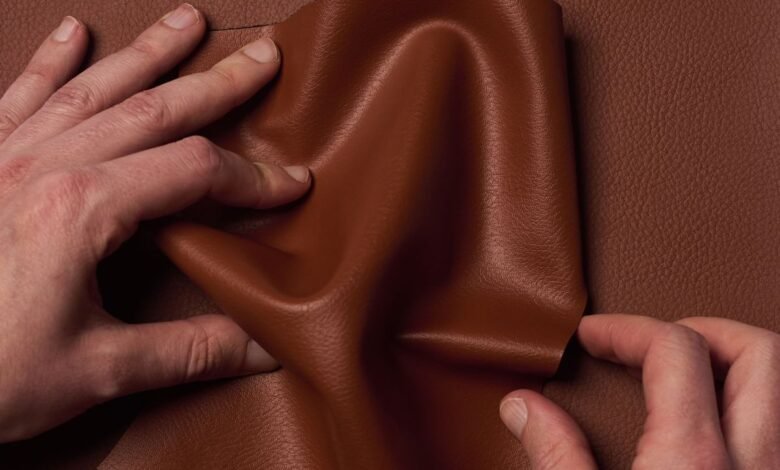Hyundai Develops Plant-Based Leather That Smells Like the Real Thing

▼ Summary
– Uncaged Innovations creates leather alternatives primarily from grains like wheat, soy, and corn, which feel and smell similar to real animal leathers.
– The startup is collaborating with automakers like Hyundai and Jaguar Land Rover to develop a durable, eco-friendly material for car interiors with a 95% lower carbon footprint than traditional leather.
– Unlike traditional leather, which can be inconsistent and wasteful due to natural blemishes, Uncaged’s material is factory-made for uniformity and cost-effectiveness, priced under $10 per square foot.
– The material is biodegradable and customizable, using plant-based components and optional bio-based polyurethane for appearance and texture, with added scents and colors as desired.
– Heat resistance remains a key challenge for automotive use, but Uncaged has made progress, achieving 85°C for 500 hours in initial tests toward a target of 95°C.
Hyundai is pioneering the development of plant-based leather that not only mimics the look and feel of genuine animal hide but also replicates its distinctive scent, marking a significant step forward in sustainable automotive interiors. This innovation comes through a partnership with Uncaged Innovations, a startup specializing in bio-based materials derived from grains like wheat, soy, and corn. Unlike conventional synthetic leathers made from fossil fuel-derived plastics, this new material offers an eco-friendly alternative with a drastically reduced carbon footprint.
Uncaged Innovations has engineered its plant-based leather to be highly customizable, addressing the diverse needs of automakers who require different textures, thicknesses, and finishes. The material boasts a carbon footprint that is 95% lower than traditional leather, making it an attractive option for brands aiming to meet sustainability targets without sacrificing luxury. In addition to its environmental benefits, the product is competitively priced, with large orders costing as little as $5 per square foot.
Durability and heat resistance remain critical challenges for automotive applications, but the company has made substantial progress. Recent testing shows the material withstanding temperatures of 85°C for 500 hours, approaching the stringent requirements set by some manufacturers. The development process involved extensive experimentation with plant proteins to replicate the fibril structures found in animal collagen, resulting in a material that behaves and feels remarkably similar to the real thing.
The backing used for the leather alternative is made from plant-based fibers, and both layers are biodegradable. A thin bio-based polyurethane coating is sometimes applied to enhance appearance and tactile qualities, offering flexibility in finish, from smooth to textured. Mineral pigments provide color variety, and natural extracts can be incorporated to produce specific fragrances, a feature that has intrigued both automotive and fashion clients.
Automakers represent a major market for sustainable leather alternatives, given that a single vehicle interior can require up to 14 cowhides, much of which is wasted due to natural imperfections. Uncaged’s factory-produced material ensures consistency and quality, free from the scars and variations typical of animal-derived leather. The company is currently conducting tests with several automotive brands, including Hyundai and Jaguar Land Rover, and has already found success in the fashion sector with vegan handbags and watch straps.
The ability to infuse scents, ranging from floral notes to brand-exclusive aromas, has proven unexpectedly popular, opening new possibilities for sensory branding. As the automotive industry continues to prioritize sustainability, plant-based leathers that look, feel, and even smell authentic are poised to play an increasingly important role in the vehicles of the future.
(Source: TechCrunch)